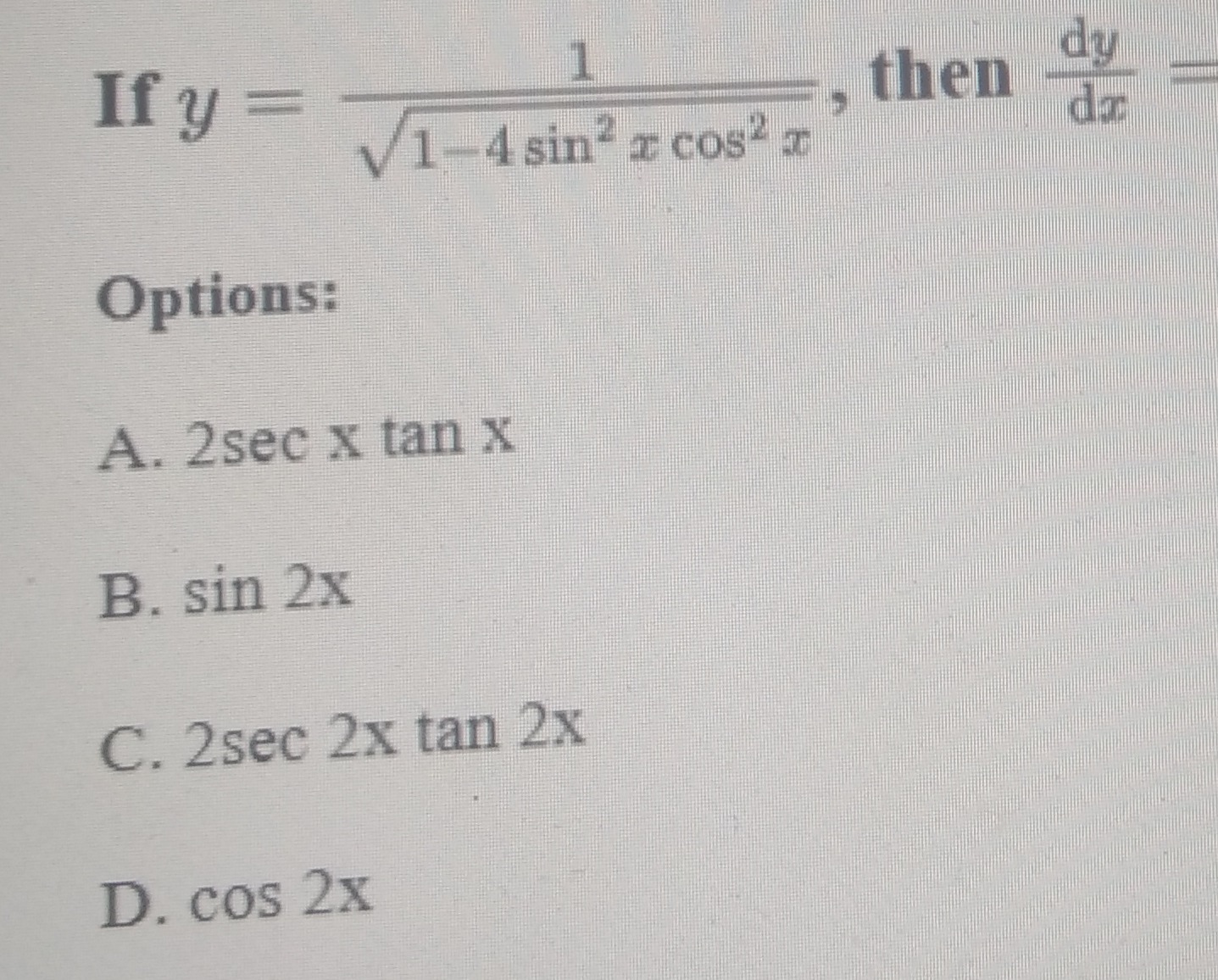Question
Question: If $y = \frac{1}{\sqrt{1-4\sin^2x\cos^2x}}$, then $\frac{dy}{dx} = $...
If y=1−4sin2xcos2x1, then dxdy=

2sec x tan x
sin 2x
2sec 2x tan 2x
cos 2x
2sec 2x tan 2x
Solution
The given function is y=1−4sin2xcos2x1.
We can simplify the expression inside the square root using trigonometric identities. We know that 2sinxcosx=sin2x. So, 4sin2xcos2x=(2sinxcosx)2=(sin2x)2=sin22x. Substitute this into the expression for y: y=1−sin22x1 Using the identity 1−sin2θ=cos2θ, we have 1−sin22x=cos22x. So, y=cos22x1. The square root of cos22x is ∣cos2x∣. Thus, y=∣cos2x∣1=∣sec2x∣.
The question asks for the derivative dxdy. The derivative of ∣u∣ is sgn(u)dxdu, where sgn(u) is the sign function. Here, u=sec2x. The derivative of u with respect to x is dxdu=dxd(sec2x). Using the chain rule, dxd(sec(ax))=asec(ax)tan(ax). For a=2, we have dxd(sec2x)=2sec2xtan2x. So, dxdy=dxd∣sec2x∣=sgn(sec2x)⋅(2sec2xtan2x).
The options provided are simple expressions without the sign function or piecewise definition. This suggests that the question might be implicitly considering a domain where cos2x>0, which implies sec2x>0. In such a domain, ∣sec2x∣=sec2x. Assuming cos2x>0, we have y=cos2x1=sec2x. Now, we differentiate y=sec2x with respect to x: dxdy=dxd(sec2x) Using the chain rule, let u=2x. Then dxdu=2. dxdy=dud(secu)⋅dxdu=(secutanu)⋅2=sec(2x)tan(2x)⋅2=2sec2xtan2x.
This result matches option C.
